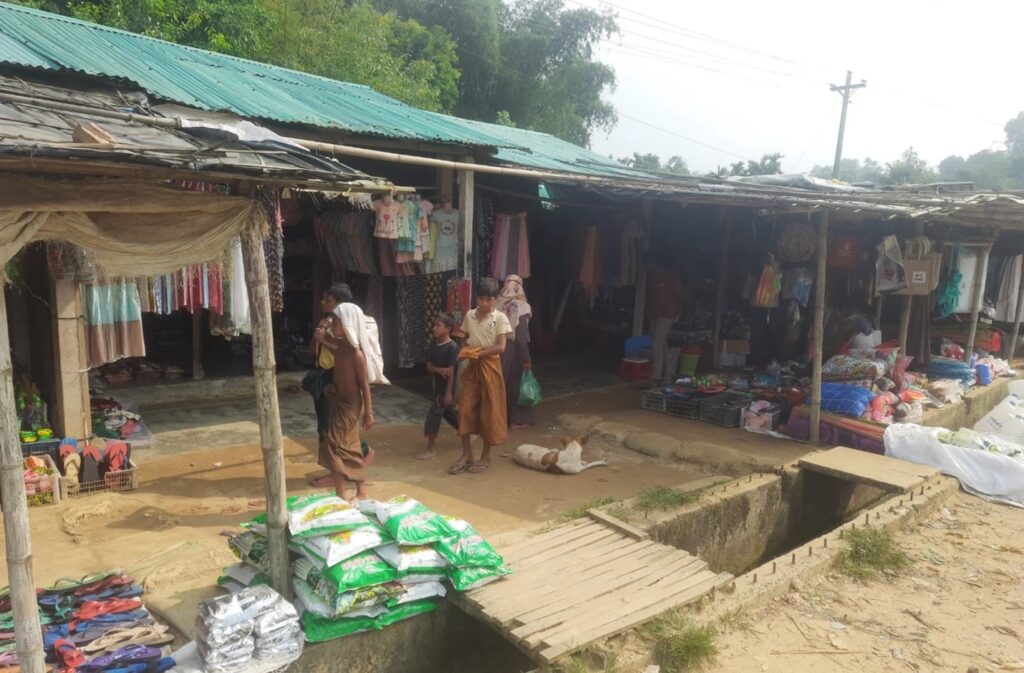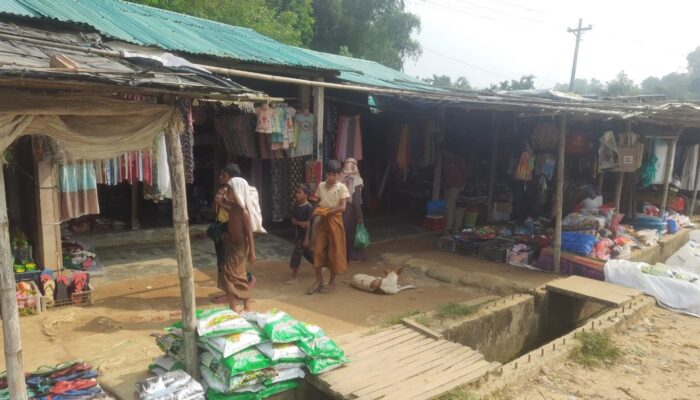A GLIMPSE INTO ENTREPRENEURSHIP IN CHALLENGING CONTEXTS—SOME THOUGHTS
A marketplace born of adversity
The morning was humid as we wandered together along the makeshift marketplace at Balukhali Bazar in Cox’s Bazar. This vibrant stretch of stalls along the dusty road near the Rohingya refugee camp—the largest in the world—was buzzing with activity. Men and women bartered over goods, children darted through the narrow spaces between vendors, and the faint aroma of cooked food mingled with the smell of everyday wares. At first glance, it felt like any other bustling South Asian market. But a closer look revealed something more profound: most of the goods on display were aid items—packs of blankets, kitchen sets, plastic sheets, and hygiene products, all bearing the logos of international organizations.
These entrepreneurs weren’t just surviving; they were innovating. Despite their dire circumstances, they had carved out an informal economy that allowed them to meet their needs and navigate their uncertain lives. Yet, as we observed, their efforts didn’t quite align with the conventional labels of subsistence entrepreneurship or necessity entrepreneurship, as these forms of entrepreneurship typically arise from the need to secure basic survival, but in this context, the refugees receive aid that largely fulfills those needs. Nor could their efforts be classified as emancipatory entrepreneurship; systemic constraints—legal restrictions, lack of mobility, and limited access to formal markets—kept them tethered to the edges of survival.

The complex reality of aid-driven enterprises
The Rohingya refugees in Cox’s Bazar are masters of bricolage—making do with what’s at hand. In the absence of conventional resources, they repurpose relief items to fuel micro-enterprises. Some sell the aid they receive, while others transform these materials into something more. For instance, tent sheets originally intended for shelter now double as makeshift roofs for their market stalls. Cooking item tins and buckets are recycled as containers for storage and display, while surplus food rations are converted into ingredients for hot snacks like shingaras and fritters, which they sell freshly cooked.
Yet, this adaptive ingenuity is not without its challenges. Refugees lack the legal rights to work, which forces them into the informal economy, where exploitation is rampant. The very aid intended to support their well-being often becomes the foundation for precarious business models. While aid fulfills many immediate survival needs, their entrepreneurship becomes a way to navigate gaps left by the aid system and to regain some control over their livelihoods. However, systemic barriers—restricted movement, absence of formal banking systems, and the stigma of being refugees—prevent these entrepreneurs from scaling their ventures or achieving true independence. It’s a paradoxical existence: entrepreneurship as a source of agency, constrained by the very systems meant to protect them.
Breaking the barriers: unlocking entrepreneurial potential
As we stood by the roadside, watching a young boy skillfully stack tins of cooking oil, we couldn’t help but think about the untapped potential of these entrepreneurs. What if they had access to formal markets? What if their businesses could grow beyond their current limitations? The informal economy they’ve built demonstrates resilience and creativity, but institutional barriers prevent it from becoming something more.
Easing these barriers is not just about granting legal work rights, though that’s an essential step. It’s also about providing platforms for skill-building, creating access to microfinance tailored to their unique context, and fostering collaboration between host communities and refugees to build inclusive local economies. Most importantly, it requires recognizing the dignity and agency of these entrepreneurs, moving away from a narrative of dependency toward one of empowerment.
The bustling stalls at Balukhali Bazar are a testament to the entrepreneurial spirit that thrives even in the face of unimaginable adversity. But if we are to truly support these entrepreneurs, we must go beyond admiration for their resourcefulness and take meaningful action to dismantle the barriers they face. Only then can the vibrancy of their makeshift markets transform into sustainable pathways for dignity and independence.

